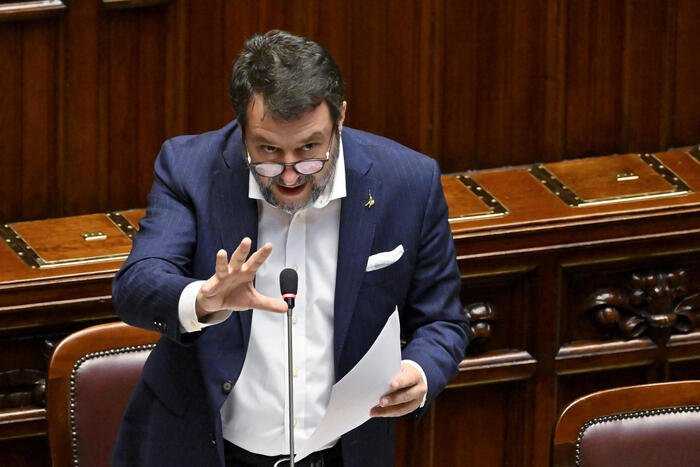If poetry is a way of asking about the self and identity, it cannot be surprising that the word
mother
frequently appears on the shore of a return: "Mother, I'm going to Santiago tomorrow, / to soak myself in your blessing and your crying.
/ I am accommodating my disappointments and the rosy / soreness of my false trajines”, wrote the Peruvian poet César Vallejo.
Trajines are usually false if they have kept us away from the place where our language brought us into the world.
Faced with maternal feelings, it is a temptation to charge the causes of uprooting to the paternal authority of realities: “The sea.
The sea / The sea.
Only the sea!
/ Why did you bring me, Father, to the city?".
It is true that many things fit into words, especially when they are subjected by poetry to the musical movement of the waves of life.
“The sea, The sea / The sea…”.
The tension is aggravated in the round trips that we are made and undone.
Exiled since 1939, residing in Argentina since 1940, the poet from Cádiz yearned for the other shore in America, his shore, but over the years, while the clouds brought him the map of Spain, he became aware that his identity had also entered a new way of being: "Barrancas del Paraná: with me you will come the day / that the sea passes again".
Exile stuff, but not things that depend solely on exile.
The teacher Francisco Ayala looked at the 20th century in an article from 1948, "For whom do we write?", in which he stated that the word of the exiles, for example, his, basically represented the situation of the shifting identity, without roots, that characterizes the citizens of modernity, extreme of an existence in which speed has broken the old stabilities.
That is why I dare to affirm here that the issues that the International Congress of the Spanish Language is going to deal with, miscegenation and interculturality, the sea or the sea in between, invite us to become aware from the language and culture of all fundamental debates inherited from the 20th century and broadened with the digital transformation in the 21st century.
What the industrial revolution of the big cities meant for human identity is now being redefined by the navigations of a new digital revolution.
A language as solid as Spanish can aspire to maintain the
maternal
adjective in the currents of globalization.
The Spanish language, a common territory of the one and the diverse, has maintained its unity over the years and respects the nuances of its 500 million speakers and their wide worlds, but never alien.
It is a good point of reference to consider what the dreams and realities that bear our name are made of.
Some theorists are uncomfortable with the word
miscegenation
because they think that it hides an offense against the indigenous inside.
Without ignoring that there are many mestizos who despise the indigenous, just as there are many white supremacists who despise the mestizo, I dare to assume another awareness of miscegenation: a way of recognizing historical processes and approaching our own identity as an open sense of belonging, a way of shaping the self that can be linked to life in common without considering the other as a threat.
Round trip, Arequipa in Cádiz and Cádiz in Arequipa.
As director of the Cervantes Institute, I thank the authorities of the Peruvian Foreign Ministry for all the effort made since 2019 to hold this congress and the Ministry of Foreign Affairs of the Government of Spain for its fraternal commitment to carry it out when circumstances made it unfeasible to hold it in Arequipa. .
Cádiz is certainly a good place to continue reflecting on the ties of pan-Hispanic miscegenation and can also open up to other issues related to Europe, North Africa and the ties and tension that migrations show in the dynamics of interculturality.
We can make a statement of pan-Hispanism here by interpreting a little the words of the first two articles of the Constitution of 1812. Article 1: "The pan-Hispanic community is the gathering of all Spanish speakers in both hemispheres."
Article 2. "Spanish is free and independent, and it is not and cannot be the patrimony of any country, family, or person."
And since we are talking about open identities, unity and diversity in the 21st century, it will also be good to remember Article 13: "The object of the government is the happiness of the Nation, since the end of all political society is none other than the well-being of all the individuals that compose it.
What a good
National Episode
Benito Pérez Galdós dedicated to the liberal Cádiz of 1812. And what a good material is the mother tongue to reflect on our way of being and our right to happiness, an inevitably linked issue, the sea, the sea, the sea , only the sea, to the relationships between intimacy, the private and the public, or between the first, second and third person of the verbs.
"If you love me, go away," Lola Flores asked the people who were invading and hindering a family celebration.
To now celebrate the centenary of her birth, we can affirm with philological rigor that the words of La Faraona respond to a way of speaking in western Andalusia in which the pronoun
is
, which is a third person pronoun, shifts to the second person.
But we can also give a spin to what the feeling that leaving is a way of loving means, an approach that brings us back to the hustle and bustle caused by maternal love.
In those years in Spain, the society of the spectacle began to spread strongly, the pink impudence of the mixtures between the private and the public in the dynamics of communication and the media sale of happiness, although not of well-being, as a wrapped product in role of glamorous life.
With the same mechanisms, although in other roles, hate speech, racism, irrationalism and lies are involved today.
So it is convenient to take seriously the nouns, the pronouns and the persons of the verb and the place they occupy in each time and each space.
The defense of human rights and democratic values is a primary task for those of us who love the mother tongue and the Spanish-speaking community.
When we held the previous Congress of La Lengua, in Córdoba, Argentina, we had the opportunity to visit the house in Alta Gracia where Falla lived his exile and worked on his mestizo music between classical and Andalusian folklore.
From there we bring his teaching to Cádiz on a round trip.
But I can't resist the temptation to bring me something else.
The Cordovan poet Daniel Salzano, who lived for many years in Spain, made his verse “poets never give up” his slogan.
If we talk about miscegenation, interculturality and language, I would like this Congress to endorse a slogan that the Cádiz Football Club popularized a few years ago: "The fight is not negotiated".
Luis García Montero
is a writer and director of the Cervantes Institute.
Subscribe to continue reading
Read without limits
Keep reading
I'm already a subscriber



/cloudfront-eu-central-1.images.arcpublishing.com/prisa/AW2KNQ2UOZA4PHPLO4DEKRFIOQ.jpg)


/cloudfront-eu-central-1.images.arcpublishing.com/prisa/INU3EC6I6VF6NEMPKWATA22NNA.jpg)

/cloudfront-eu-central-1.images.arcpublishing.com/prisa/YYFLACLTQBGVXLURCA34LLTDVU.jpg)
